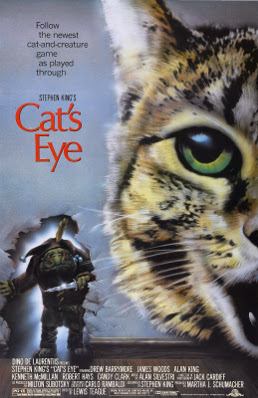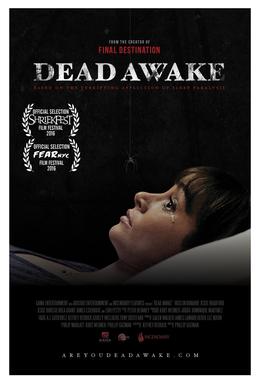Plot
Labu (Mohd. Zain) and Labi (P. Ramlee) are servants in the household of Haji Bakhil, a miserly old man with a loyal wife and a beautiful daughter (Mariani). Both Labu and Labi are constantly scolded, insulted and forced to do the traditional school punishment ketok-ketampi by the grouchy Haji Bakhil. The two bear the ill-treatment and continue working there without complaint because they are both secretly in love with his daughter, Manisah.
One night as the pair are attempting to sleep on the verandah of Haji Bakhil's house, they exchange stories of make-believe to amuse each other.
Night club
Labu and Labi talk about what they would do if they were as rich as their boss. Labi imagines that he is a magistrate and Labu pretends to be doctor. In an imaginary sequence, the pair visit a night-club, where "Haji Bakhil" appears as a waiter who attempts to get their order. Labu and Labi watch a performance by Saloma who sings the song Bila Larut Malam with her husband P. Ramlee providing back-up vocals. Following this there is a fashion show where Sarimah is one of the models. After the show, Labu goes back-stage to meet Sarimah in her dressing room, but Labi arrives for exactly the same purpose. The film returns to the "real world", where Labu and Labi are loudly fighting over Sarimah, waking up their boss, Haji Bakhil, who shouts at them to go to sleep.
The Malay Tarzan
After a while, Labu says that he wouldn't want to live in the city, but out in the free wilderness. He imagines that he is a Malay Tarzan, complete with keris. In this sequence, Haji Bakhil is Chita, Labu's primate sidekick. As Labu is preparing his sambal belacan for his meal, Labi arrives in the dream sequence dressed as a tiger, saying that he wants to eat Labu. The pair start to fight, and it wakes up their boss again, who comes out to scold and order them to go to sleep.
In the Wild West
After having settled down again, Labu asks Labi whether he would like to live in the wilderness like Tarzan. Labi says that he would much prefer to be a cowboy. He imagines that he's a Sheriff (claiming to be the younger brother of Nat King Cole), while Labi imagines that he is Jesse Labu, the youngest brother of Jesse James, not to mention the most feared outlaw and the deadliest gunslinger in the town. Labu and Labi eventually start a gunfight in the imaginary bar, and their gun sound effects wake their boss up for the third time. Haji Bakhil yells at them to go to sleep, and punishes them for their behaviour by giving them chores to do first thing in the morning.
Labu and Labi Find Their Fortune
The next morning, Labu goes into the forest to collect the firewood as ordered by Haji Bakhil. As he does, he sees a suspicious man exiting a secret passageway on the top of a small hill. After the man is gone Labu enters the passageway and discovers a room filled with money, presumably stolen. Labu grabs some of the money and leaves his job at the Haji Bakhil home without announcement.
Not too long later, Haji Bakhil and family are given a surprise when Labu's new personal assistant (Shariff Dol) arrives at the house, announcing that Labu has recently inherited a fortune and seeks Manisah's hand in marriage. Haji Bakhil refuses, and as retaliation Labu visits a bomoh (magician man) who casts a spell on Manisah, causing her to fall into a coma. Labu sends a message to Haji Bakhil that he will remove the spell if he allows Labu to wed his daughter.
Witnessing this turn of events, Labi visits a magician man of his own, who gives him a magical stone that, when dropped into any water, causes the liquid to have healing properties. Labi uses the stone to cure Manisah. Haji Bakhil is overjoyed and Manisah is touched by Labi's kindness, so Labi is allowed to marry Manisah.
On the day of the wedding, Labu arrives at the house and casts a spell that causes everyone to fall asleep except for Labi, who uses his magic stone to wake up Manisah. Labu enters the house and tries to convince Manisah to marry him instead, but Labi stops him and a fight ensues. During the struggle, Labu grabs an axe and brings it down on Labi's head.
Then it is revealed that the entire sequence was also a dream, and Labu is actually pounding Labi on the head with a pillow. Labu, however, is so caught up in his dream that he doesn't realise that he's woken up, and continues to fight with a confused Labi. Haji Bakhil wakes up yet again and is doubly enraged when Labu continues to boast and act as though he's wealthy and powerful. When Manisah appears at a window to see what the commotion is about, Labu begs her to leave Labi and marry him instead. Manisah is confused and tells Labu he must have been dreaming. This finally makes Labu realise his error.
Haji Bakhil, who is still very angry at having his sleep continually disrupted, punishes both Labu and Labi by making them do the ketok-ketampi.

The Dukes of Hazzard is an American action comedy television series created by Gy Waldron that aired on CBS from January 26, 1979, to February 8, 1985, with a total of seven seasons consisting of 147 episodes. It was consistently among the top-rated television series in the late 1970s and early 1980s.

Cat's Eye is a 1985 American anthology horror thriller film directed by Lewis Teague and written by Stephen King. It comprises three stories: "Quitters, Inc.", "The Ledge", and "General". The first two are adaptations of short stories in King's 1978 Night Shift collection, and the third is unique to the film. The cast includes Drew Barrymore, James Woods, Alan King, Robert Hays and Candy Clark. The three stories are connected by the presence of a traveling cat and Barrymore, both of whom play incidental roles in the first two and major characters in the third.

Ganon is a character and the main antagonist of Nintendo's The Legend of Zelda video game series and franchise, as well as the final boss in many Zelda titles. In his humanoid Gerudo form, he is known as Ganondorf. A massive and malevolent porcine creature, Ganon first appeared in the original The Legend of Zelda game in 1986, while his alter ego, Ganondorf, was introduced in Ocarina of Time. He has since appeared in the majority of the games in the series in various forms. He is the archenemy of the protagonist Link and Princess Zelda of Hyrule and originally the leader of the Gerudo, a race of humanoid desert nomads before becoming the ruler of his demon army.
"I Dream of Genie" is an episode of the American television anthology series The Twilight Zone. This episode is a comedy about a man who finds a genie and struggles to decide what to wish for, pondering the question through a series of hypothetical dream sequences.

Kapitan China Chung Keng Quee was the founder and administrator of modern Taiping in Perak, Malaysia. Appointed "Capitan China" by the British in 1877, he was a millionaire philanthropist and known as an innovator in the mining of tin. He was involved in many other industries including farming, pawnbroking and logging. He was respected by both Chinese and European communities in the early colonial settlement. His survival in the chaotic era owes much to his standing as leader of the Hai San, a Chinese secret society in British Malaya during the time of the Larut Wars (1862–73), a position he is said to have held until early 1884, although in all probability he continued to remain a leading member. The old fort at Teluk Batu was built by him to safeguard the mine that he opened there.

Demolition Man is a pair of action video games based on the film of the same name. Acclaim Entertainment published the 16-bit version, which features run and gun gameplay, for the Super NES, Sega Genesis and Sega CD. Virgin Interactive released a completely different game for the 3DO that combined several distinct gameplay styles. In both games, the player controls John Spartan, the main character from the film, as he attempts to find and defeat his nemesis, Simon Phoenix.

Southeast Asian cinema is the film industry and films produced in, or by natives of Southeast Asia. It includes any films produced in Brunei, Cambodia, East Timor, Indonesia, Laos, Malaysia, Myanmar, the Philippines, Singapore, Thailand and Vietnam. The majority of the films made in this region came from the Philippines, Thailand, and Indonesia where its filmmaking industries in these countries are already well-established with film directors such as Lino Brocka, Apichatpong Weerasethakul, and Joko Anwar are well-known outside of the region. Notable production studios in Southeast Asia include Star Cinema, Viva Films, TBA Studios and Reality Entertainment in the Philippines, GDH 559 and Sahamongkol Film International in Thailand, Rapi Films in Indonesia, Astro Shaw in Malaysia, Encore Films in Singapore, and Studio 68 in Vietnam

Ibu Mertuaku is a 1962 Singaporean Malay-language black-and-white melodrama film directed by and starring silver-screen legend P. Ramlee. The film's story revolves around the tragic love affair between Kassim Selamat, a poor musician, and Sabariah, the only daughter of a wealthy woman.

Tiga Abdul is a 1964 Malaysian Malay-language black-and-white comedy film directed by and starring Malaysian silver-screen icon P. Ramlee. It tells the story of three brothers who are caught in a web of trickery set by the cunning Sadiq Segaraga, who uses his three daughters to try and fleece the three brothers of all their wealth. The movie is a tribute to traditional folktales with a moral set into the story and is set in a fictional Middle Eastern country named Isketambola, loosely based on Istanbul, Turkey. It was the last film to be directed by P. Ramlee in Singapore before he moved to his new workplace in Merdeka Studios, Kuala Lumpur in 1965.
Nasib Si Labu Labi, or known as What Happened to Labu and Labi is a 1963 Singaporean Malay-language black-and-white buddy comedy film directed by and starring P. Ramlee. The film is a sequel to Labu dan Labi and features a number of returning cast members.

Salmah binti Ismail, better known by her stage name Saloma, was a Singaporean-Malaysian singer, film actress, trendsetter and a fashion icon who became well known in the late 1950s.
Malaysian popular music, sometimes called shortly Malaysian pop or abbreviated as M-pop, refers to popular music forms in Malaysia. Although popular music in various languages such as Mandopop are popular and have been produced in Malaysia, Malaysian pop refers to music recorded primarily in the Malay language in Malaysia.

The Double is a 2013 British black comedy thriller film written and directed by Richard Ayoade and starring Jesse Eisenberg and Mia Wasikowska. It is based on the 1846 novella The Double by Fyodor Dostoyevsky, about a man driven to breakdown when he is usurped by a doppelgänger. It was produced by Alcove Entertainment, with Michael Caine, Graeme Cox (Attercop), Tessa Ross (Film4) and Nigel Williams as executive producers.

"BMO Noire" is the seventeenth episode of the fourth season of the American animated television series Adventure Time. The episode was written and storyboarded by Tom Herpich and Skyler Page, from a story by Patrick McHale, Kent Osborne, and Pendleton Ward. It originally aired on Cartoon Network on August 6, 2012. The episode guest stars Andy Milonakis as N.E.P.T.R.

Abimana Aryasatya is an Indonesian actor. He is best known for starring in the films Shackled (2012), 99 Cahaya di Langit Eropa (2013), Haji Backpacker (2014), and in the second highest-grossing Indonesian film of all time, Warkop DKI Reborn: Jangkrik Boss! Part 1 (2016). He has received multiple awards and nominations such as Indonesian Movie Awards, Indonesian Film Festival, and Indonesian Box Office Movie Awards.
"Every Man's Dream" is the twenty-seventh season premiere of the American animated television series The Simpsons, and the 575th episode of the series overall. The episode was directed by Matthew Nastuk and written by J. Stewart Burns. It aired in the United States on Fox on September 27, 2015.

Dead Awake is a 2016 American supernatural psychological horror film written by Jeffrey Reddick and directed by Phillip Guzman. It stars Jocelin Donahue, Jesse Bradford, Jesse Borrego, Brea Grant, James Eckhouse, and Lori Petty.

Jesse Walsh is a fictional character in the A Nightmare on Elm Street franchise. He was created by David Chaskin and portrayed by Mark Patton. Making his debut in A Nightmare on Elm Street 2: Freddy's Revenge in 1985, Jesse became the first male protagonist of the series. In Freddy's Revenge, Freddy enacts a plan to possess Jesse, using his body to kill in the real world, slowly gaining the strength to manifest his form physically. Outside of the films, Jesse has a main role in the novels. Because of the LGBT representation in a mainstream film, Jesse has developed a large fan base in the gay community and has been called a gay icon. Jesse has been observed by some scholars as a variation of the "final girl" slasher film archetype, and instead a "final boy".













